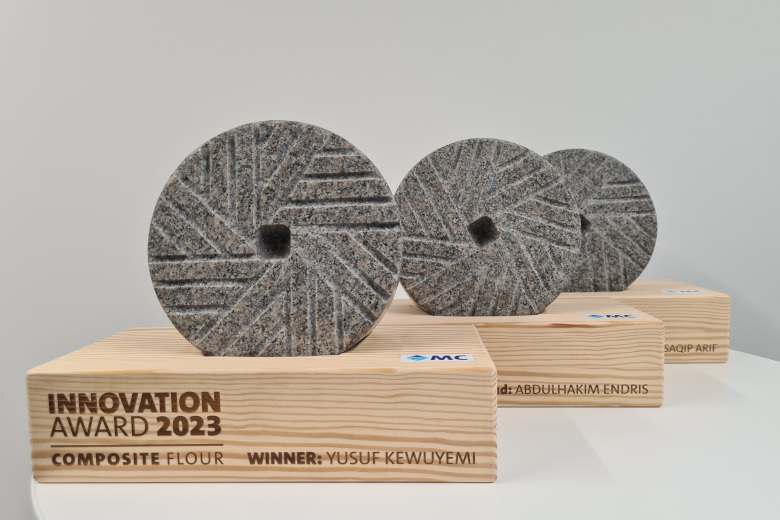
MC Mühlenchemie offered the first 2023 Flour Innovation Award to composite flour innovations through a virtual ceremony, held on July 4. The prize debuts on the occasion of MC Mühlenchemie’s centennial anniversary and acknowledges “innovative solutions for the sustainable use of wheat and local agricultural commodities.”
The three winners come from South Africa, Ethiopia and Pakistan. In total, 23 research projects from nine countries on four continents were submitted for the 2023 Composite Flour Innovation Award.
The prize money, EUR 10,000 in total, was divided among the three winners. The first prize (and EUR 5,000) went to Yusuf Kewuyemi, a doctoral student at the University of Johannesburg, for his development of 3D-printed crackers from processed whole-grain flour made of African-grown peas and quinoa. These plants are highly nutritious and can help reduce the risk of non-communicable diseases. In order to raise the flour’s nutritional content and improve its bioavailability, Kewuyemi used innovative techniques like fermentation and germination. The final product is a functional, highly nutritious snack in the form of a 3D-printed cracker. This research shows that traditional crops can be transformed into health-promoting foods using innovative processing techniques.
The second prize (and EUR 3,000 reward) went to Abdulhakim Idris of Jimma University in Jimma, Oromia Region, Ethiopia. In his study ‘Optimizing the process variables for the production of oat compound biscuits’, he looked into the optimum mix of wheat and oat flour for making biscuits. Different parameters were analysed, including mixing ratio, baking time and baking temperature, along with their influence on properties like the weight, thickness, spread ratio and texture of the biscuits.
Third place and its corresponding EUR 2,000 reward went to Saqib Arif of the University of Karachi in Pakistan. His study looked at the potential of composite flour from mixes of underused grains in response to the worldwide rise in wheat prices and increasing sustainability concerns. The results show that mixed flours have a better nutrition profile, are rich in fiber and bioactive compounds, and thus represent a promising possibility for reducing dependence on wheat, although challenges remain with regard to processability and sensory characteristics.
“The research projects submitted demonstrate that composite flour has enormous potential to make the future of our food production sustainable. They show that with intelligent and innovative methods, we can reduce our dependence on wheat without having to give up taste and quality. This look into the future promises many exciting developments, and we’re looking forward to continuing to promote and support progress,” said Dr. Lutz Popper, Chairman of the Jury of the Composite Flour Science Award, in presenting the winning projects.
Photo: Mühlenchemie


